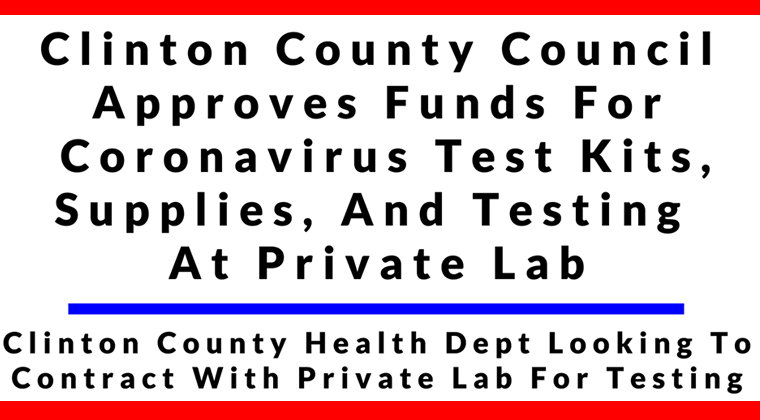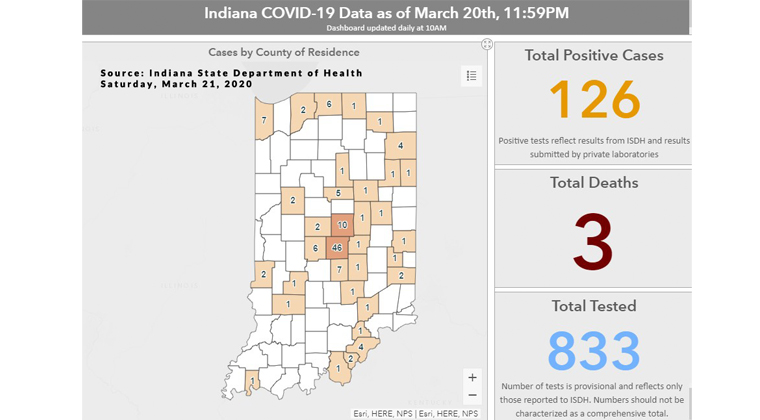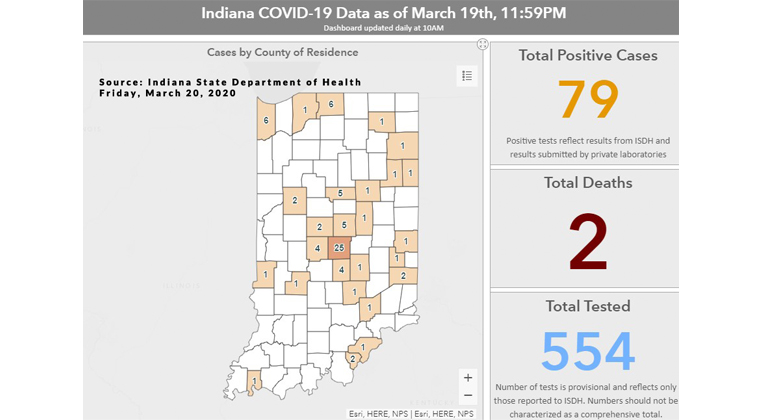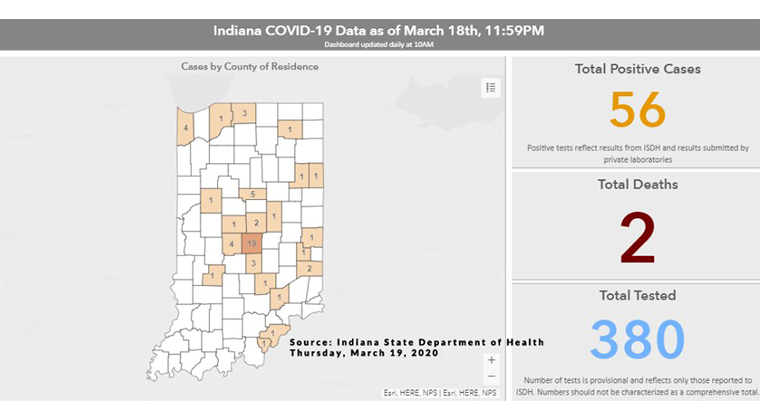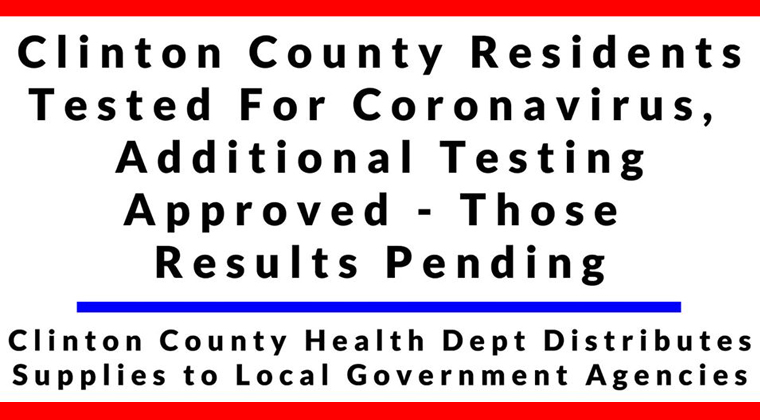Clinton County Council Approves Funds For Coronavirus Test Kits, Supplies, And Testing At Private Lab
At an emergency meeting of the Clinton County Council on Friday, March 20, 2020, funds were approved COVID-19 Pandemic supplies and services.
“The total money was funding for COVID-19 Pandemic supplies and services,” said County Councilman Jon Hussey. “Some was to replace funds that were already used but most was for the expenses to come.”
Those supplies should arrive in the coming week.
“From what I understand we are not sure of the exact date of arrival but supposedly this coming week,” said County Councilman Hussey.
On Monday, March 16, 2020, The Clinton County Health Department (CCHD) had previously reported making a request for supplies from the Strategic National Stockpile.
CCHD has stated Clinton County residents have been tested for coronavirus with no confirmed cases.

